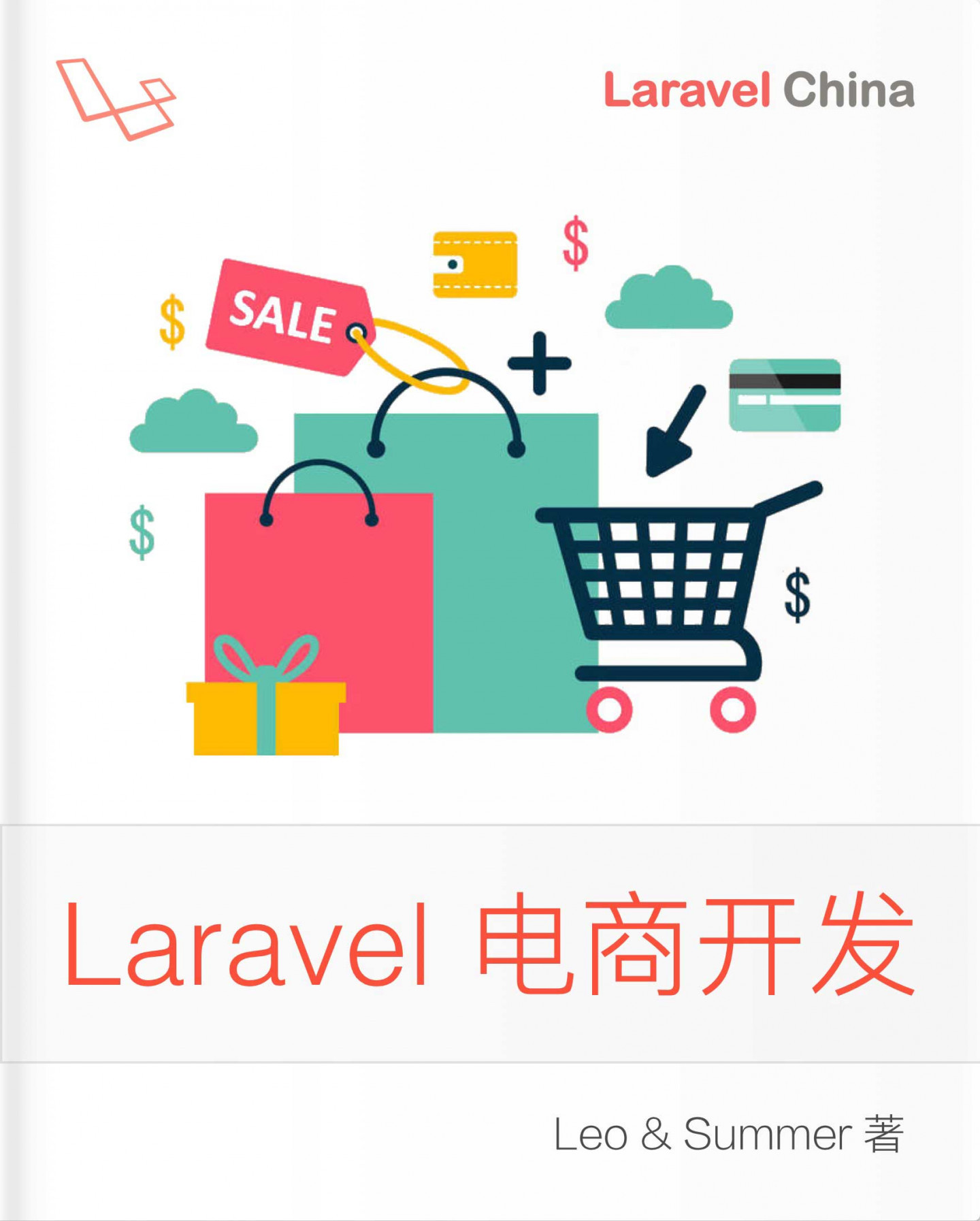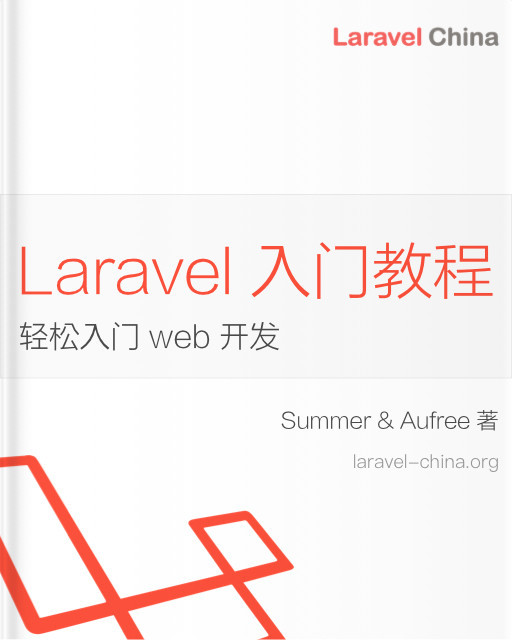属性修改器 / 类型转换
Eloquent: 修改器 & 类型转换
介绍
访问器(Accessors)、修改器(Mutators)和属性类型转换(Attribute Casting)允许你在 获取或设置 Eloquent 模型实例上的属性时 对值进行转换。
例如,你可能希望使用 Laravel 加密器 在将值存储到数据库时对其加密,然后在通过 Eloquent 模型访问该属性时自动解密。
又或者,你可能希望将存储在数据库中的 JSON 字符串,在通过 Eloquent 模型访问时自动转换为数组。
访问器和修改器
定义访问器
访问器会在访问 Eloquent 属性值时对其进行转换。
要定义一个访问器,请在模型中创建一个 受保护方法(protected method) 来表示该可访问的属性。此方法名应当对应于底层模型属性 / 数据库列的 驼峰命名(camel case)形式(如果适用)。
在这个示例中,我们将为 first_name 属性定义一个访问器。
当尝试获取 first_name 属性的值时,Eloquent 会自动调用此访问器。
所有属性的访问器 / 修改器方法必须声明一个返回类型提示:Illuminate\Database\Eloquent\Casts\Attribute:
<?php
namespace App\Models;
use Illuminate\Database\Eloquent\Casts\Attribute;
use Illuminate\Database\Eloquent\Model;
class User extends Model
{
/**
* 获取用户的 first name
*/
protected function firstName(): Attribute
{
return Attribute::make(
get: fn (string $value) => ucfirst($value),
);
}
}所有访问器方法都会返回一个 Attribute 实例,它定义了该属性将如何被访问,以及(可选地)如何被修改。
在这个示例中,我们只定义了该属性如何被访问。
为此,我们向 Attribute 类的构造函数提供 get 参数。
如你所见,数据表列的原始值会传递给访问器,这样你就可以对其进行处理并返回。
要访问访问器的值,你只需在模型实例上访问 first_name 属性即可:
use App\Models\User;
$user = User::find(1);
$firstName = $user->first_name;[!注意]
如果你希望这些计算后的值被添加到模型的 数组 / JSON 表示中,
你需要手动将它们追加。
从多个属性构建值对象 (Building Value Objects From Multiple Attributes)
有时,你的访问器可能需要将多个模型属性转换为单个“值对象(value object)”。
为此,你的 get 闭包可以接受第二个参数 $attributes,该参数会自动传入闭包中,并包含模型当前所有属性的数组:
use App\Support\Address;
use Illuminate\Database\Eloquent\Casts\Attribute;
/**
* 与用户的地址交互
*/
protected function address(): Attribute
{
return Attribute::make(
get: fn (mixed $value, array $attributes) => new Address(
$attributes['address_line_one'],
$attributes['address_line_two'],
),
);
}访问器缓存 (Accessor Caching)
当从访问器返回值对象时,对该值对象所做的任何更改都会在模型保存之前自动同步回模型。
这是可能的,因为 Eloquent 会保留访问器返回的实例,以便在每次调用访问器时返回相同的实例:
use App\Models\User;
$user = User::find(1);
$user->address->lineOne = 'Updated Address Line 1 Value';
$user->address->lineTwo = 'Updated Address Line 2 Value';
$user->save();然而,有时你可能希望为 原始值(primitive values)(例如字符串和布尔值)启用缓存,尤其是在这些值的计算开销很大时。
要实现这一点,你可以在定义访问器时调用 shouldCache 方法:
protected function hash(): Attribute
{
return Attribute::make(
get: fn (string $value) => bcrypt(gzuncompress($value)),
)->shouldCache();
}如果你想要 禁用属性的对象缓存行为,你可以在定义属性时调用 withoutObjectCaching 方法:
/**
* 与用户的地址交互
*/
protected function address(): Attribute
{
return Attribute::make(
get: fn (mixed $value, array $attributes) => new Address(
$attributes['address_line_one'],
$attributes['address_line_two'],
),
)->withoutObjectCaching();
}定义修改器 (Defining a Mutator)
修改器会在 设置 Eloquent 属性值时 对其进行转换。
要定义一个修改器,你可以在定义属性时提供 set 参数。
下面我们为 first_name 属性定义一个修改器。
当我们尝试在模型上设置 first_name 属性的值时,这个修改器会自动被调用:
<?php
namespace App\Models;
use Illuminate\Database\Eloquent\Casts\Attribute;
use Illuminate\Database\Eloquent\Model;
class User extends Model
{
/**
* 与用户的 first name 交互
*/
protected function firstName(): Attribute
{
return Attribute::make(
get: fn (string $value) => ucfirst($value),
set: fn (string $value) => strtolower($value),
);
}
}修改器闭包会接收即将被设置到属性上的值,让你能够对该值进行处理并返回处理后的值。
要使用我们的修改器,我们只需要在 Eloquent 模型上设置 first_name 属性即可:
use App\Models\User;
$user = User::find(1);
$user->first_name = 'Sally';在这个示例中,set 回调会接收到值 Sally。
修改器随后会对该名称应用 strtolower 函数,并将其结果值设置到模型的内部 $attributes 数组中。
修改多个属性 (Mutating Multiple Attributes)
有时,你的修改器可能需要在底层模型上设置多个属性。
要实现这一点,你可以从 set 闭包中返回一个数组。
数组中的每个键都应对应于模型的底层属性 / 数据表列:
use App\Support\Address;
use Illuminate\Database\Eloquent\Casts\Attribute;
/**
* 与用户的地址交互
*/
protected function address(): Attribute
{
return Attribute::make(
get: fn (mixed $value, array $attributes) => new Address(
$attributes['address_line_one'],
$attributes['address_line_two'],
),
set: fn (Address $value) => [
'address_line_one' => $value->lineOne,
'address_line_two' => $value->lineTwo,
],
);
}属性类型转换 (Attribute Casting)
属性类型转换提供了与访问器和修改器类似的功能,
但它不需要你在模型上定义任何额外的方法。
相反,你可以通过模型的 casts 方法,方便地将属性转换为常见的数据类型。
casts 方法应返回一个数组,其中 键是要进行类型转换的属性名称,
而 值是你希望将该列转换成的类型。
支持的转换类型有:
arrayAsUri::classAsStringable::classbooleancollectiondatedatetimeimmutable_dateimmutable_datetimedecimal:<precision>doubleencryptedencrypted:arrayencrypted:collectionencrypted:objectfloathashedintegerobjectrealstringtimestamp
为了演示属性类型转换(attribute casting),让我们把数据库中以整数 (0 或 1) 存储的 is_admin 属性,转换为布尔值:
<?php
namespace App\Models;
use Illuminate\Database\Eloquent\Model;
class User extends Model
{
/**
* 获取需要进行类型转换的属性
*
* @return array<string, string>
*/
protected function casts(): array
{
return [
'is_admin' => 'boolean',
];
}
}在定义了该类型转换之后,is_admin 属性在被访问时将始终被转换为布尔值,
即使其底层在数据库中是以整数形式存储的:
$user = App\Models\User::find(1);
if ($user->is_admin) {
// ...
}如果你需要在运行时临时添加一个新的类型转换,可以使用 mergeCasts 方法。
这些转换定义会被添加到模型上已经定义的任何转换中:
$user->mergeCasts([
'is_admin' => 'integer',
'options' => 'object',
]);[!警告]
值为null的属性不会被转换。
此外,你 绝对不应该 定义一个与 关系(relationship)名称相同 的类型转换(或属性),
也不要给模型的 主键(primary key) 指定类型转换。
Stringable 类型转换 (Stringable Casting)
你可以使用 Illuminate\Database\Eloquent\Casts\AsStringable 转换类,
将模型属性转换为一个 fluent 的 Illuminate\Support\Stringable 对象:
<?php
namespace App\Models;
use Illuminate\Database\Eloquent\Casts\AsStringable;
use Illuminate\Database\Eloquent\Model;
class User extends Model
{
/**
* 获取需要进行类型转换的属性
*
* @return array<string, string>
*/
protected function casts(): array
{
return [
'directory' => AsStringable::class,
];
}
}数组和 JSON 转换 (Array and JSON Casting)
当处理以 序列化 JSON 存储的列时,array 类型转换特别有用。
例如,如果你的数据库有一个 JSON 或 TEXT 字段类型,并且里面存储了序列化的 JSON,
那么在该属性上添加 array 转换后,当你在 Eloquent 模型上访问该属性时,
它会自动将该值反序列化为 PHP 数组:
<?php
namespace App\Models;
use Illuminate\Database\Eloquent\Model;
class User extends Model
{
/**
* 获取需要进行类型转换的属性
*
* @return array<string, string>
*/
protected function casts(): array
{
return [
'options' => 'array',
];
}
}一旦定义了该转换,你就可以访问 options 属性,
它会自动从 JSON 反序列化为 PHP 数组。
当你为 options 属性赋值时,传入的数组会自动序列化为 JSON 并存储到数据库中:
use App\Models\User;
$user = User::find(1);
$options = $user->options;
$options['key'] = 'value';
$user->options = $options;
$user->save();如果你想用更简洁的语法更新 JSON 属性中的某个字段,
你可以先 将该属性设置为可批量赋值,
然后在调用 update 方法时使用 -> 操作符:
$user = User::find(1);
$user->update(['options->key' => 'value']);JSON 和 Unicode (JSON and Unicode)
如果你希望将数组属性存储为 带有未转义 Unicode 字符的 JSON,
可以使用 json:unicode 类型转换:
/**
* 获取需要进行类型转换的属性
*
* @return array<string, string>
*/
protected function casts(): array
{
return [
'options' => 'json:unicode',
];
}数组对象和集合转换 (Array Object and Collection Casting)
虽然标准的 array 类型转换对许多应用来说已经足够了,但它也有一些缺点。
由于 array 转换返回的是 原始类型(primitive type),因此无法直接修改数组的某个偏移量。
例如,下面的代码会触发一个 PHP 错误:
$user = User::find(1);
$user->options['key'] = $value;为了解决这个问题,Laravel 提供了一个 AsArrayObject 转换,
它会将你的 JSON 属性转换为 ArrayObject 类。
这个特性是通过 Laravel 的 自定义转换 实现的,
Laravel 能够智能地缓存并转换已修改的对象,从而使你能够修改单个偏移量,而不会触发 PHP 错误。
要使用 AsArrayObject 转换,只需将它分配给某个属性:
use Illuminate\Database\Eloquent\Casts\AsArrayObject;
/**
* 获取需要进行类型转换的属性
*
* @return array<string, string>
*/
protected function casts(): array
{
return [
'options' => AsArrayObject::class,
];
}同样地,Laravel 还提供了一个 AsCollection 转换,
它会将你的 JSON 属性转换为一个 Laravel Collection 实例:
use Illuminate\Database\Eloquent\Casts\AsCollection;
/**
* 获取需要进行类型转换的属性
*
* @return array<string, string>
*/
protected function casts(): array
{
return [
'options' => AsCollection::class,
];
}如果你希望 AsCollection 转换实例化的是一个 自定义集合类,
而不是 Laravel 的基础集合类,你可以将集合类名作为转换参数传入:
use App\Collections\OptionCollection;
use Illuminate\Database\Eloquent\Casts\AsCollection;
/**
* 获取需要进行类型转换的属性
*
* @return array<string, string>
*/
protected function casts(): array
{
return [
'options' => AsCollection::using(OptionCollection::class),
];
}of 方法可用于指示集合项应通过集合的 mapInto 方法 映射到给定的类:
use App\ValueObjects\Option;
use Illuminate\Database\Eloquent\Casts\AsCollection;
/**
* 获取需要进行类型转换的属性
*
* @return array<string, string>
*/
protected function casts(): array
{
return [
'options' => AsCollection::of(Option::class)
];
}在将集合映射到对象时,该对象应当实现 Illuminate\Contracts\Support\Arrayable 和 JsonSerializable 接口,
以定义其实例如何序列化为 JSON 并存储到数据库中:
<?php
namespace App\ValueObjects;
use Illuminate\Contracts\Support\Arrayable;
use JsonSerializable;
class Option implements Arrayable, JsonSerializable
{
public string $name;
public mixed $value;
public bool $isLocked;
/**
* 创建一个新的 Option 实例
*/
public function __construct(array $data)
{
$this->name = $data['name'];
$this->value = $data['value'];
$this->isLocked = $data['is_locked'];
}
/**
* 将实例作为数组返回
*
* @return array{name: string, data: string, is_locked: bool}
*/
public function toArray(): array
{
return [
'name' => $this->name,
'value' => $this->value,
'is_locked' => $this->isLocked,
];
}
/**
* 指定应序列化为 JSON 的数据
*
* @return array{name: string, data: string, is_locked: bool}
*/
public function jsonSerialize(): array
{
return $this->toArray();
}
}日期转换 (Date Casting)
默认情况下,Eloquent 会将 created_at 和 updated_at 列转换为 Carbon 实例。
Carbon 扩展了 PHP 的 DateTime 类,并提供了许多实用方法。
你可以通过在模型的 casts 方法中定义额外的日期类型转换,来转换更多的日期属性。
通常,日期应使用 datetime 或 immutable_datetime 转换类型。
在定义 date 或 datetime 类型转换时,你还可以指定日期的格式。
这个格式会在 模型序列化为数组或 JSON 时使用:
/**
* 获取需要进行类型转换的属性
*
* @return array<string, string>
*/
protected function casts(): array
{
return [
'created_at' => 'datetime:Y-m-d',
];
}当某列被转换为日期时,你可以将对应的模型属性值设置为 UNIX 时间戳、日期字符串 (Y-m-d)、日期时间字符串,或者 DateTime / Carbon 实例。
该日期的值会被正确转换并存储到数据库中。
你可以通过在模型上定义 serializeDate 方法,自定义所有模型日期的默认序列化格式。
这个方法不会影响日期在数据库中的存储格式:
/**
* 为数组 / JSON 序列化准备日期
*/
protected function serializeDate(DateTimeInterface $date): string
{
return $date->format('Y-m-d');
}如果你想指定 实际存储到数据库中的日期格式,
可以在模型上定义 $dateFormat 属性:
/**
* 模型日期列的存储格式
*
* @var string
*/
protected $dateFormat = 'U';日期转换、序列化与时区 (Date Casting, Serialization, and Timezones)
默认情况下,date 和 datetime 类型转换会将日期序列化为 UTC ISO-8601 日期字符串
(YYYY-MM-DDTHH:MM:SS.uuuuuuZ),
无论你的应用 timezone 配置选项设置为何值。
强烈建议你始终使用这种序列化格式,并且通过不更改应用的 timezone 配置选项(保持默认 UTC)来将应用日期存储在 UTC 时区中。
在整个应用中一致使用 UTC 时区,可以确保与你使用的 PHP 和 JavaScript 日期操作库的最大兼容性。
如果对 date 或 datetime 类型转换应用了自定义格式,例如 datetime:Y-m-d H:i:s,
则在日期序列化过程中会使用 Carbon 实例的内部时区。
通常,这会是你应用 timezone 配置选项中指定的时区。
然而,需要注意的是,像 created_at 和 updated_at 这样的 timestamp 列不受此行为影响,
它们始终以 UTC 格式化,而不管应用的时区设置如何。
枚举转换 (Enum Casting)
Eloquent 还允许你将属性值转换为 PHP 枚举 (Enums)。
为此,你可以在模型的 casts 方法中指定要转换的属性及对应的枚举类:
use App\Enums\ServerStatus;
/**
* 获取需要进行类型转换的属性
*
* @return array<string, string>
*/
protected function casts(): array
{
return [
'status' => ServerStatus::class,
];
}在模型上定义了枚举类型转换后,
当你与该属性交互时,它会自动在枚举与原始值之间进行转换:
if ($server->status == ServerStatus::Provisioned) {
$server->status = ServerStatus::Ready;
$server->save();
}转换枚举数组 (Casting Arrays of Enums)
有时,你可能希望模型在单个列中存储 枚举值数组。
为此,你可以使用 Laravel 提供的 AsEnumArrayObject 或 AsEnumCollection 转换:
use App\Enums\ServerStatus;
use Illuminate\Database\Eloquent\Casts\AsEnumCollection;
/**
* 获取需要进行类型转换的属性
*
* @return array<string, string>
*/
protected function casts(): array
{
return [
'statuses' => AsEnumCollection::of(ServerStatus::class),
];
}加密转换 (Encrypted Casting)
encrypted 类型转换会使用 Laravel 内置的 加密功能 对模型属性值进行加密。
此外,encrypted:array、encrypted:collection、encrypted:object、AsEncryptedArrayObject 和 AsEncryptedCollection 转换的行为与未加密版本类似;
然而,如你所料,当存储到数据库时,底层值会被加密。
由于加密后的文本长度不可预测,并且通常比原文长,
请确保相关数据库列的类型为 TEXT 或更大。
此外,由于值在数据库中被加密,你将无法直接查询或搜索加密属性的值。
密钥轮换 (Key Rotation)
如你所知,Laravel 使用应用 app 配置文件中指定的 key 配置值来加密字符串。
通常,这个值对应于环境变量 APP_KEY 的值。
如果你需要轮换应用的加密密钥,则需要使用新密钥手动重新加密已加密的属性。
查询时转换 (Query Time Casting)
有时,你可能需要在执行查询时应用类型转换,例如在从表中选择原始值时。
例如,考虑以下查询:
use App\Models\Post;
use App\Models\User;
$users = User::select([
'users.*',
'last_posted_at' => Post::selectRaw('MAX(created_at)')
->whereColumn('user_id', 'users.id')
])->get();该查询结果中的 last_posted_at 属性将只是一个普通字符串。
如果我们能够在执行查询时对这个属性应用 datetime 类型转换,那就非常方便了。
幸运的是,我们可以使用 withCasts 方法实现这一点:
$users = User::select([
'users.*',
'last_posted_at' => Post::selectRaw('MAX(created_at)')
->whereColumn('user_id', 'users.id')
])->withCasts([
'last_posted_at' => 'datetime'
])->get();自定义类型转换
Laravel 有许多内置的很有用的转换类型;然而,你有时可能需要定义自己的转换类型。要创建一个类型转换,请执行 make:cast Artisan 命令。新的转换类将放置在你的 app/Casts 目录中:
php artisan make:cast AsJson所有自定义转换类都实现了 CastsAttributes 接口。实现此接口的类必须定义一个 get 和 set 方法。get 方法负责将数据库中的原始值变换为转换值,而 set 方法应该将转换值变换为可以存储在数据库中的原始值。作为一个例子,我们将内置的 json 转换类型重新实现为一个自定义转换类型:
<?php
namespace App\Casts;
use Illuminate\Contracts\Database\Eloquent\CastsAttributes;
use Illuminate\Database\Eloquent\Model;
class AsJson implements CastsAttributes
{
/**
* 转换给定的值。
*
* @param array<string, mixed> $attributes
* @return array<string, mixed>
*/
public function get(
Model $model,
string $key,
mixed $value,
array $attributes,
): array {
return json_decode($value, true);
}
/**
* 为存储准备给定的值。
*
* @param array<string, mixed> $attributes
*/
public function set(
Model $model,
string $key,
mixed $value,
array $attributes,
): string {
return json_encode($value);
}
}一旦明确好一个自定义转换类型,你就可以使用其类名将其附加到模型属性上:
<?php
namespace App\Models;
use App\Casts\AsJson;
use Illuminate\Database\Eloquent\Model;
class User extends Model
{
/**
* 获取应类型转换的属性。
*
* @return array<string, string>
*/
protected function casts(): array
{
return [
'options' => AsJson::class,
];
}
}值对象类型转换
不限于将值转换为原始类型,你还可以将值转换为对象。定义将值转换为对象的自定义转换与转换为原始类型非常相似;但是,set 方法应返回一个键 / 值对数组,这些键 / 值对将用于在模型上设置原始的可存储值。
作为一个例子,我们将定义一个自定义转换类,该类将多个模型值转换为一个 Address 值对象。我们假设 Address 值对象有两个公共属性:lineOne 和 lineTwo :
<?php
namespace App\Casts;
use App\ValueObjects\Address;
use Illuminate\Contracts\Database\Eloquent\CastsAttributes;
use Illuminate\Database\Eloquent\Model;
use InvalidArgumentException;
class AsAddress implements CastsAttributes
{
/**
* 转换给定的值。
*
* @param array<string, mixed> $attributes
*/
public function get(
Model $model,
string $key,
mixed $value,
array $attributes,
): Address {
return new Address(
$attributes['address_line_one'],
$attributes['address_line_two']
);
}
/**
* 存储准备给定的值。
*
* @param array<string, mixed> $attributes
* @return array<string, string>
*/
public function set(
Model $model,
string $key,
mixed $value,
array $attributes,
): array {
if (! $value instanceof Address) {
throw new InvalidArgumentException('The given value is not an Address instance.');
}
return [
'address_line_one' => $value->lineOne,
'address_line_two' => $value->lineTwo,
];
}
}在类型转换为值对象时,对值对象所做的任何更改都会在模型保存之前自动同步回模型:
use App\Models\User;
$user = User::find(1);
$user->address->lineOne = 'Updated Address Value';
$user->save();[! 注意]
如果你打算将包含值对象的 Eloquent 模型序列化为 JSON 或数组,你应该在值对象上实现Illuminate\Contracts\Support\Arrayable和JsonSerializable接口。
值对象缓存
解析转换为值对象的属性时,它们会被 Eloquent 缓存。因此,如果再次访问该属性,将返回相同的对象实例。
如果你想禁用自定义类型转换类的对象缓存行为,可以在自定义转换类上声明一个公共的 withoutObjectCaching 属性:
class AsAddress implements CastsAttributes
{
public bool $withoutObjectCaching = true;
// ...
}数组 / JSON 序列化
当使用 toArray 和 toJson 方法将 Eloquent 模型转换为数组或 JSON 时,只要你的自定义转换值对象有实现 Illuminate\Contracts\Support\Arrayable 和 JsonSerializable 接口,它们通常也会被序列化。可是,当使用第三方库提供的值对象时,你可能没有能力向对象添加这些接口。
因此,你可以指定你的自定义转换类用于负责序列化值对象。为此,你的自定义转换类应该实现 Illuminate\Contracts\Database\Eloquent\SerializesCastableAttributes 接口。该接口表明你的类应该包含一个 serialize 方法,该方法应返回值对象的序列化形式:
/**
* 获取值的序列化表示形式。
*
* @param array<string, mixed> $attributes
*/
public function serialize(
Model $model,
string $key,
mixed $value,
array $attributes,
): string {
return (string) $value;
}入站类型转换
有时,你可能需要编写一个自定义转换类,该类仅转换正在设置到模型上的值,并且在从模型检索属性时不执行任何操作。
仅入站的自定义转换应实现 CastsInboundAttributes 接口,该接口仅需要定义一个 set 方法。调用带 --inbound 选项的 make:cast Artisan 命令来生成仅入站的转换类:
php artisan make:cast AsHash --inbound仅入站转换的一个经典例子是「哈希」转换。例如,我们可以定义一个通过给定算法对入站值进行哈希处理的转换:
<?php
namespace App\Casts;
use Illuminate\Contracts\Database\Eloquent\CastsInboundAttributes;
use Illuminate\Database\Eloquent\Model;
class AsHash implements CastsInboundAttributes
{
/**
* 创建一个新的类型转换类实例。
*/
public function __construct(
protected string|null $algorithm = null,
) {}
/**
* 为存储准备给定的值。
*
* @param array<string, mixed> $attributes
*/
public function set(
Model $model,
string $key,
mixed $value,
array $attributes,
): string {
return is_null($this->algorithm)
? bcrypt($value)
: hash($this->algorithm, $value);
}
}类型转换参数
当将自定义转换附加到模型时,可以通过使用 : 字符分隔类名称并将多个参数用逗号分隔来指定转换参数。参数将被传递给转换类的构造函数:
/**
* 获取应类型转换的属性。
*
* @return array<string, string>
*/
protected function casts(): array
{
return [
'secret' => AsHash::class.':sha256',
];
}可转换类
你可能想要允许应用程序的值对象定义它们自己的自定义转换类。你不需要将自定义转换类附加到模型上,而是可以附加一个实现了 Illuminate\Contracts\Database\Eloquent\Castable 接口的值对象类:
use App\ValueObjects\Address;
protected function casts(): array
{
return [
'address' => Address::class,
];
}实现 Castable 接口的对象必须定义一个 castUsing 方法,该方法返回负责从 Castable 类转换的自定义转换类类名:
<?php
namespace App\ValueObjects;
use Illuminate\Contracts\Database\Eloquent\Castable;
use App\Casts\AsAddress;
class Address implements Castable
{
/**
* 获取在从/向此转换目标转换时要使用的转换类名称。
*
* @param array<string, mixed> $arguments
*/
public static function castUsing(array $arguments): string
{
return AsAddress::class;
}
}当使用 Castable 类时,你仍然可以在 casts 方法定义中提供参数。参数将被传递给 castUsing 方法:
use App\ValueObjects\Address;
protected function casts(): array
{
return [
'address' => Address::class.':argument',
];
}可转换类和匿名转换类
通过将「可转换类」与 PHP 的匿名类结合,你可以将值对象及其转换逻辑定义为一个单一的可转换对象。为此,从值对象的 castUsing 方法返回一个匿名类。匿名类应实现 CastsAttributes 接口:
<?php
namespace App\ValueObjects;
use Illuminate\Contracts\Database\Eloquent\Castable;
use Illuminate\Contracts\Database\Eloquent\CastsAttributes;
class Address implements Castable
{
// ...
/**
* 获取在从/向此转换目标转换时要使用的转换类。
*
* @param array<string, mixed> $arguments
*/
public static function castUsing(array $arguments): CastsAttributes
{
return new class implements CastsAttributes
{
public function get(
Model $model,
string $key,
mixed $value,
array $attributes,
): Address {
return new Address(
$attributes['address_line_one'],
$attributes['address_line_two']
);
}
public function set(
Model $model,
string $key,
mixed $value,
array $attributes,
): array {
return [
'address_line_one' => $value->lineOne,
'address_line_two' => $value->lineTwo,
];
}
};
}
}本译文仅用于学习和交流目的,转载请务必注明文章译者、出处、和本文链接
我们的翻译工作遵照 CC 协议,如果我们的工作有侵犯到您的权益,请及时联系我们。

 Laravel 12 中文文档
Laravel 12 中文文档





 关于 LearnKu
关于 LearnKu




推荐文章: